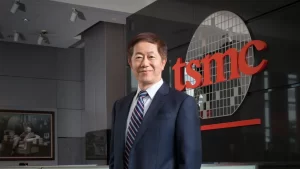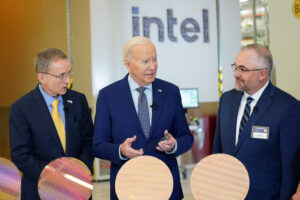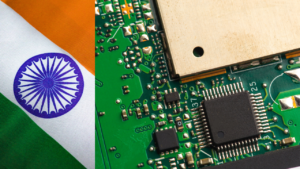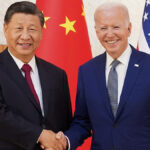In a recent interview with Barron’s, Intel CEO voiced concerns about the vulnerability of the global semiconductor supply chain. He stressed the urgency for the U.S. to take swift action to enhance its resilience.
Gelsinger highlighted the potential catastrophic impact of the current geopolitical climate and the heavy concentration of semiconductor manufacturing in Taiwan on the global economy if not addressed promptly.
His recommendations include expediting funds under semiconductor legislation and implementing vital changes in immigration policies to establish the U.S. as a leader in the ongoing “chip war.”
1. The Changing Landscape of Geopolitics
Intel CEO pointed out that the world’s geopolitical landscape is shifting, and technology supply chains are now taking center stage. He drew a parallel between the historical importance of oil production in shaping policies and geopolitics over the past five decades and the emerging significance of technology manufacturing and research for the next fifty years.
The implication is clear: technology manufacturing and R&D will become critical drivers of national and global economies, and it is essential to strategically position these activities where they can be most effective.
He also criticized the industrial policies of the United States over the past half-century, which allowed technology manufacturing to migrate to Asia.
This shift has significantly reduced Europe and the U.S.’s market share in advanced semiconductor manufacturing from 80% in the 1990s to just 20% today.
Read More: What are the Key Regulatory Changes by US in the Expanded Ban to China?
2. Taiwan’s Dominance and the Risk it Poses
A significant concern raised by Intel CEO is Taiwan’s dominant position in advanced semiconductor manufacturing, accounting for approximately 80% of global production. While Taiwan’s expertise is undeniable, Gelsinger warns that such a concentration poses a severe risk. In the event of geopolitical tensions or a crisis, a disruption in Taiwan’s semiconductor production could have devastating global consequences.
He highlights the potential consequences of a Taiwanese blockade, stating that it could lead to a global economic standstill. Gelsinger suggests creating resilient supply chains that span multiple regions, such as Europe, Asia, and the United States, instead of relying on a single region. This approach helps mitigate the risk.
Read More: What is the Progress of Semiconductor Ecosystem in India in Last 2 years?
3. Delayed Government Support and Semiconductors
Gelsinger underscores the vital role of government support in achieving this goal. He considers the semiconductor legislation as one of the most critical industrial policies post-World War II. However, he points out that companies have been slow to receive subsidies and financial support for their investments and research efforts.
One action item is the acceleration of fund disbursement under the semiconductor legislation to ensure that companies can invest in R&D and manufacturing in US. This move will help bolster the domestic semiconductor industry and reduce reliance on overseas suppliers.
4. Addressing the Talent Shortage
Another key concern highlighted by Gelsinger is the shortage of tech talent in the U.S. According to SIA, the U.S. semiconductor industry is expected to face a shortfall of 115,000 job openings by 2030. There are only 67,000 qualified professionals available domestically.
Gelsinger suggests tapping into the excellent U.S. education system to train foreign students. Current immigration policies hinder U.S. companies from hiring foreign talent, despite these individuals’ desire to work in the United States. Gelsinger suggests reforming immigration policies to attract and retain global talent, which will foster innovation and growth in the U.S. tech industry.
The Path Forward
In summary, Gelsinger’s insights emphasize the complexity of the semiconductor supply chain and its crucial role in the world’s future. To protect against geopolitical vulnerabilities and strengthen America’s standing in the semiconductor industry, swift action is necessary.
This includes expediting fund allocation, boosting research and development, and reforming immigration policies. These steps can assist the United States in regaining a competitive edge in the global semiconductor market. By promoting innovation, nurturing talent, and securing the semiconductor supply chain, the U.S. can better prepare for the challenges of the 21st-century tech landscape.








